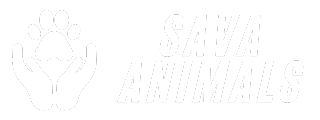Delta Airline Jobs: See Salaries and How to Apply is your quick guide to find and land work with Delta. You will see common roles like pilot, flight attendant, and ground operations, plus corporate, technical, and customer service openings near you.
Learn how to apply online, complete screening assessments, prepare for interviews and background checks, and track your application status. Understand what drives salaries for crew and ground staff and how seniority, aircraft type, and hours matter.
Use tips to tailor your resume, attach required certifications, avoid common errors, and review benefits and career growth.



Explore Delta Air Lines jobs you can apply for today
Start by using this Delta Airline Jobs: See Salaries and How to Apply guide so you know what pay looks like and what steps come next. You’ll get a quick feel for roles, typical pay ranges, and the basic paperwork you’ll need — a roadmap before you jump in.
Delta hires across a wide range of work styles. Choose a hands-on airport job with shift work, a flying role with irregular schedules, or a steady corporate office position. Benefits, training programs, and career ladders differ by job, so match your lifestyle and goals before you apply.
Get your documents ready now: a clean resume, relevant certificates, and a short cover note that says why you fit. Practice a short elevator pitch you can use in interviews. When possible, mention real examples of handling pressure or helping a customer — plain stories beat buzzwords.
See common roles like pilot, flight attendant, and ground operations
Pilots, flight attendants, and ground crew are the visible heart of Delta’s daily work. Pilots need licenses and flight hours. Flight attendants need strong people skills and safety training. Ground ops include ramp agents, baggage handlers, and mechanics who keep planes moving.
Each job has clear entry points and steps to move up.
Think about daily life in these jobs. Pilots spend time away from home and log hours. Flight attendants face long days but get travel perks. Ground staff work outdoors or in hangars and need physical stamina. If you like a fast pace and hands-on tasks, these roles may fit well.
Find corporate, technical, and customer service openings near you
Corporate jobs cover HR, finance, marketing, and strategy and often run on regular hours. Technical jobs include aircraft maintenance technicians, engineers, and IT specialists. Customer service jobs at airports and call centers demand clear communication and calm under stress.
Search by city, job family, or remote option to find openings close to you. Internships and entry-level tracks exist if you’re starting out. Use networking — reach out to current employees on LinkedIn for a quick chat about day-to-day work.
Use Delta job openings pages to find roles that match your skills
Use Delta’s careers site filters to narrow by location, job type, and experience level. Save searches and set email alerts so new matches land in your inbox. Read job descriptions carefully and copy key phrases into your resume so applicant tracking systems pick you up. Apply quickly and follow up politely.
Follow the Delta hiring process so you know each step
Read the job posting like a map. Note the job title, required skills, and certifications. Create an account on Delta’s careers site, save the job ID, and upload a resume that matches the posting. If your resume lines up with the posting, you move forward faster.
Next comes the online application and screening: questions about work history, eligibility, and basic skills. Many roles use short assessments or situational questions. Treat those like a quiz you can pass with honesty and thought; show how you handled real problems at past jobs.
If you advance, expect interviews, background checks, drug screens, and sometimes medical or physical tests. Hiring can take a few weeks. Keep copies of your documents ready and watch your email. Search Delta Airline Jobs: See Salaries and How to Apply for up-to-date pay ranges and next steps.
Complete the online application and screening assessments yourself
Fill out the application personally; you know your dates and reasons for leaving best. Use exact months and years. If listing references, contact them first so they aren’t surprised.
For assessments, read slowly and answer honestly. Many tests look for safety awareness, customer service choices, or basic problem solving. Treat the experience like a short interview — your answers tell a story about how you work.
Prepare for interviews, background checks, and required tests
Practice short stories that show teamwork, problem solving, and reliability. Keep answers brief and clear. For video or phone interviews, test camera and audio and pick a quiet spot. Dress professionally, even on a call.
Background checks verify work, education, and criminal history. Airport roles may require drug tests, physicals, or TSA approval. Gather IDs, certificates, and past employer contacts ahead of time. Explain any employment gaps simply and honestly.
Track application status and timelines when you learn how to apply to Delta jobs
Use the Delta careers portal to watch your application and set email alerts. Save your job ID and check spam folders. If weeks pass, follow up with a short, polite message asking for an update — that keeps you on their radar without sounding pushy.
Understand Delta Air Lines salaries for pilots and flight attendants
For a clear picture before you apply, search Delta Airline Jobs: See Salaries and How to Apply. Pay at Delta varies by job, time on the line, and the routes you fly. You’ll see base pay, hourly or block pay, per diems, bonuses, and benefits like retirement and travel perks.
For pilots, pay often ties to block hours and rank; for flight attendants, pay mixes hourly, per diem, and trip guarantees.
Talk to current crew, read contract tables, and plug numbers into a simple calculator. Ask about average monthly hours and premium pay for nights or international trips.
Learn what determines pay: seniority, aircraft type, and flying hours
Seniority is a major driver. As you gain years and move up the seniority list, you get better schedules and higher pay steps. Bidding for bigger airplanes or long-haul routes increases pay.
Aircraft type and flying hours matter too: widebody, international trips, or long block hours usually pay more than short domestic hops.
Check how contracts count duty time versus block time.
Compare Delta flight attendant salary and Delta pilot salary basics
Pilots generally earn more than flight attendants because of licenses, training, and responsibilities. Pilots are paid mostly by block hours and rank. Flight attendants get hourly pay plus per diem and premiums for irregular schedules.
Both roles add value through benefits like travel, health, and retirement.
Starting pay differs: new flight attendants may see modest wages that rise with years; new pilots start at lower steps and climb with upgrades and experience. Aim for upgrades, higher aircraft types, or premium routes for faster growth.
Use official pay scales and union resources to estimate your salary
Use collective bargaining agreement pay tables on Delta’s career pages and union sites to get exact numbers.
Download rate tables, find step rates by years of service and aircraft, and calculate: multiply block hours by hourly rate, add per diem and premiums, then subtract taxes to estimate monthly take-home.
Review Delta ground operations jobs: duties, shifts, and pay
Ground roles mix hands-on work and customer service. One day you might load baggage and marshal aircraft; the next you’ll help a family at the gate or handle radio calls. You’ll work with heavy gear, follow strict safety rules, and coordinate with flight crews.
Shifts are not 9-to-5: expect early mornings, late nights, weekends, and holidays. Peaks in travel mean long days and quick turnarounds. If you need steady daytime hours, plan carefully where you apply.
Pay depends on role, location, and hours. Entry pay can be solid for physical jobs; many positions offer overtime, shift pay, and benefits. Some roles are unionized, raising base pay and adding protections.
Know typical roles like ramp agent, customer service agent, and operations tech
Ramp agents load and unload baggage, marshal aircraft, operate belt loaders, and inspect cargo. Customer service agents handle check-in, boarding, and passenger issues. Operations technicians manage schedules, ramp logistics, and equipment. Training focuses on safety, equipment, and teamwork.
See how shift work, overtime, and location affect Delta Air Lines salaries
You’ll earn more for nights and weekends. Shift differentials and overtime can add up. Many employees increase take-home by picking up extra shifts during busy months. Overtime rules and pay rates vary by contract and state.
Location matters: big hubs usually offer more hours and potentially higher pay, but cost of living may be higher. Weigh extra pay against higher expenses.
Apply practical steps to find and apply to Delta ground operations jobs
Scan Delta’s careers page and set alerts for ground roles in preferred airports. Tailor your resume to physical tasks, customer service, and safety training. Gather ID, a clean driving record, and certifications. Apply online, follow up politely, and prepare for a physical test, drug screen, and badge background check.
Build a strong Delta careers application that gets noticed
Study the job ad like a map. Pick out exact skills and words Delta lists and mirror them in your resume and application answers. If the posting asks for “safety reporting” and “crew resource management,” use those phrases. Think of your application as a concise story — make every sentence count.
Polish your online profile and LinkedIn to match your application. Add measurable results: minutes cut from turnaround time, percent improvement in on-time departures, or number of passengers helped. Keep dates consistent and explain gaps briefly and honestly.
Prepare documentation before starting the form. Scan licenses, training certificates, and ID to clean PDFs. Name files clearly, like FirstLast_AirframeCert2024.pdf. When you finish, read your answers out loud to spot mistakes.
Tailor your resume for Delta Air Lines jobs and highlight safety experience
Put safety and compliance at the top of relevant roles. If you worked in maintenance, list safety checks and any awards. If customer-facing, note emergency procedures or de-escalation examples. Use short bullet points and active verbs. Show certifications next to job titles when they matter — FAA ratings, CPR, hazardous materials training.
Fill the online form correctly and attach required certifications
Answer every required field honestly and fully. Use month and year for dates. If a comment field is available, use it to clarify unusual items with a short note.
Attach certifications in PDF under 2 MB when possible, and label files clearly. If an attachment fails, try zipping or re-exporting as PDF. Keep confirmation emails and screenshots of submission pages.
Avoid common errors and follow tips on how to apply to Delta jobs successfully
Common mistakes include typos, mismatched dates, wrong file types, and missing certificates. Use a plain, professional email address and check spam folders for replies. Follow up politely after two weeks if there’s no update.
Check Delta benefits and pay so you can plan your career path
Look at total pay, not just the hourly rate. Delta Airline Jobs: See Salaries and How to Apply is a useful search phrase for quick links to salaries and application steps. Think of pay as the base and benefits as the extras that shape your real compensation. Compare job offers by adding medical, retirement, paid time off, and travel perks to the salary number.
Map those pieces to your life. If low out-of-pocket health costs matter, favor plans with lower copays. If travel for family is frequent, standby or discounted flights can be a big saving. Write a simple budget including pay and benefits to compare offers.
Use benefits and pay to plan ahead: decide if you want fast pay jumps, steady raises, or strong retirement plans, then pick roles that match. Talk to current employees, read benefit summaries, and set milestones like promotions or certifications.
Review typical benefits like health insurance, retirement plans, and travel perks
Health insurance typically covers medical, dental, and vision. Check premiums, deductibles, co-pays, and provider networks. For families, look at dependent costs and access to mental health and maternity care.
Retirement options may include a 401(k) with match; check vesting schedules. Travel perks — standby flights, discounted tickets for family, and partner airline benefits — can be very valuable. Ask about blackout dates, booking windows, and whether standby is free.
Learn about training, advancement, and pay growth in Delta career paths
Training varies: short for some ground jobs, long and structured for licensed positions. Ask whether Delta pays for initial training or if you must fund it. For roles like flight attendant or mechanic, expect classroom time, hands-on practice, and checks before solo work.
Advancement often ties to seniority, certifications, and openings. Some roles use step increases; others depend on seats becoming available. Talk to recruiters and union reps about promotion paths and typical timelines. Keep a checklist of certifications and target dates for pay increases.
Track how benefits and pay change after hire and where to find official details
After hire, check your employee portal, benefits handbook, and any union contract for official terms. Save PDFs of plan summaries, mark open enrollment dates, and review pay stubs for deductions so you spot mistakes fast.
Delta Airline Jobs: See Salaries and How to Apply — Quick checklist
- Read the job posting and mirror key phrases in your resume.
- Apply online yourself and keep accurate dates.
- Attach clean PDFs of certifications, labeled clearly.
- Prepare 2–3 short stories showing teamwork and safety.
- Track your application in the Delta careers portal and follow up politely.
- Use official pay tables and union resources to estimate salary and benefits.
Use this guide — Delta Airline Jobs: See Salaries and How to Apply — as your starting point, then dig into role-specific contract tables and talk to current employees to refine your expectations and plan your next steps.

